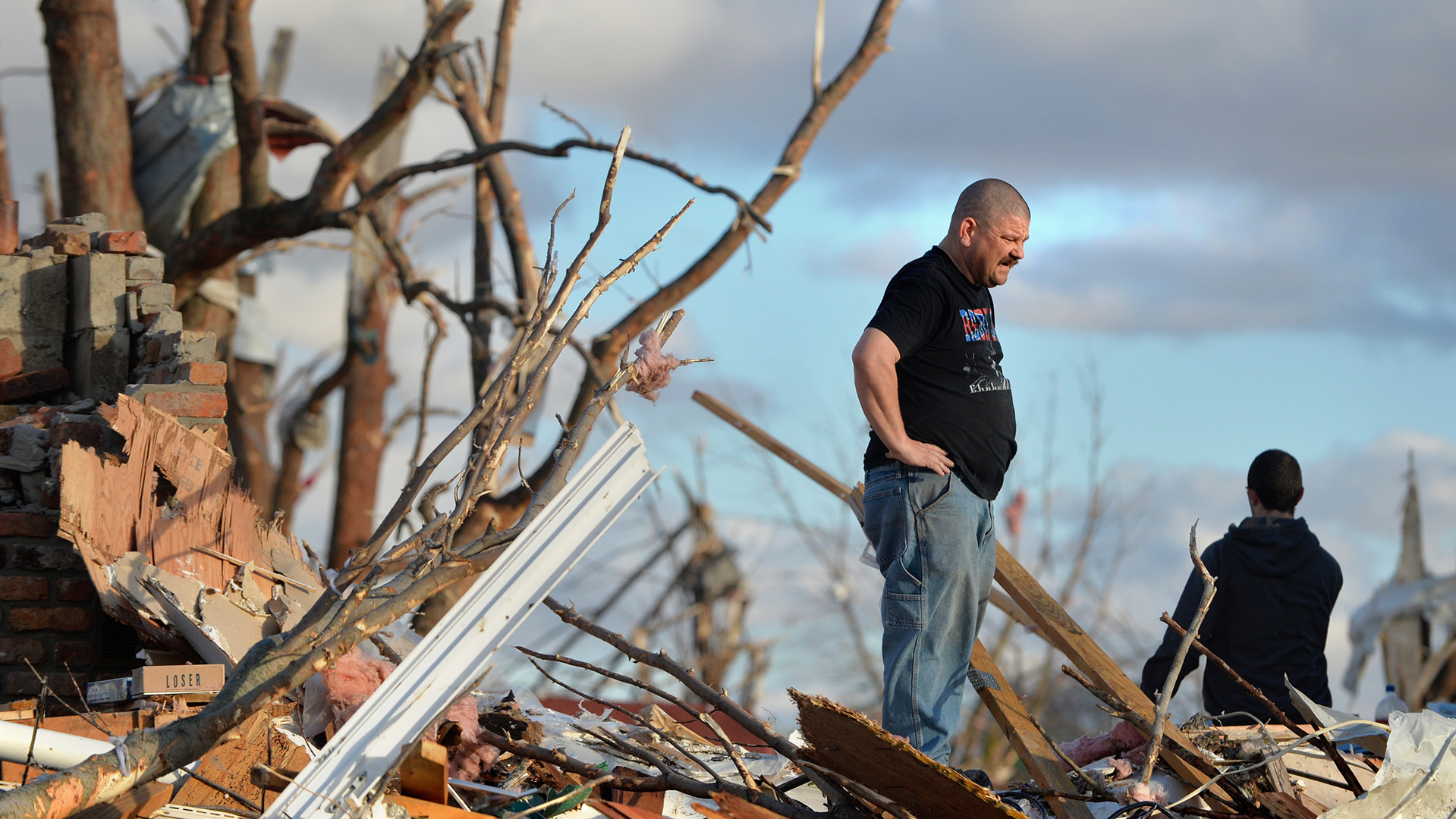Given the ‘severe and erratic weather,’ Pekin Insurance suspends writing new home insurance policies in Illinois
It’s climate change. It’s inflation. It’s a combination of both.
Whatever the reason, one fact is plain as day. The property insurance industry is suffering financial losses because of that one-two punch, and Peoria-area and other homeowners across the country are up against the ropes.
‘When a tornado demolishes a home valued at $350,000, it takes 233 claim-free homes for us to cover the cost of one claim’
— Joel Jackson
First Street Foundation, a not-for-profit organization based in New York that examines the financial implications of climate change, recently estimated that about 39 million properties, a full quarter of American homes, have underpriced policies based on their climate risk and are facing measurable premium increases.
The credit rating agency AM Best recently calculated that the U.S. homeowner insurance industry lost $24.5 billion during the first half of 2023, about the same amount it lost in all of 2022.

Joel Jackson is the senior vice president and the chief operating officer of Pekin Insurance. While noting that the number of “cat storms” — anything identified by the Insurance Services Office’s Property Claims Services unit as a catastrophe — Pekin Insurance has dealt with has been about the same annually since 2010, with a slight uptick to 14 cat storms with a cost of $151 million this year, Jackson said “the biggest problem we’re facing is inflation.
“The simple fact is, the cost to settle a claim has gone up so much, and when we raise rates to battle inflation, it takes us two years to get to the suitable rates on existing policies,” he said.
“Is climate change real? I don’t know. But what I do know is that convective storms in the Midwest are a major influencer on the financial performance of our company.”
The math isn’t working
Jackson points to three areas of concern: exposure to severe weather events, the cost to cover the claims from an event, and adequate insurance rates.
Exposure refers to physical things such as homes, apartment buildings, condominium complexes and cars that are impacted when a storm rolls through.
“To illustrate, the average premium on a home policy we write is $1,500,” he said. “When a tornado demolishes a home valued at $350,000, it takes 233 claim-free homes for us to cover the cost of one claim.”
The cost to cover the loss of a home or other property damaged by a weather event has increased exponentially because of inflation, Jackson said. Labor, materials and parts prices are skyrocketing and supply chain shortages are adding to the bottom line.
As for adequate insurance rates, Jackson said insurance companies measure their financial success based on what is known as a combined ratio.
“We target a 100% combined ratio, which means for every $1 of premium collected, we pay out $1 in claims,” he said.
“Anytime that ratio exceeds 100%, the company is paying out more money in claims than it is collecting in premiums paid. As the cost of claims continues to rise because of inflation, it’s creating ratio situations that surpass 100%.”
Responding to ‘unprecedented times’
Against that backdrop, Pekin Insurance responded in early October to the reality of “unprecedented times” in the property insurance industry caused by “severe and erratic weather patterns“ and inflation by accelerating its restructuring plan.
‘The days of $1,000 house insurance policies are over’
— Mark Whitlock
The plan switches the company’s primary focus to commercial and life insurance, “where the impacts of environmental challenges are reduced,” according to a news release.
Pekin Insurance announced that it’s temporarily not offering new homeowners and personal auto policies in Illinois, Arizona, Indiana, Ohio and Wisconsin, and no longer offering new and renewal homeowners and personal auto policies in Iowa.
The company also is no longer offering insurance for condos and apartments in the Midwest, “which … have high property risk exposures to severe weather events.”
“As the industry changes, so must Pekin Insurance,” said Dan Connell, board chairman, president and CEO of the company. “Focusing on our commercial and life insurance strategy will ensure our continued financial stability for now and many years to come.”
In response to those moves, Pekin Insurance assured policy owners who are losing coverage that their agents will work with them if they wish to find a new insurance carrier, and said claims will be handled efficiently through the rest of their policy term.
Mark Whitlock, a partner and agent with Summer & Associates in Washington, dealt with the insurance aftermath of the 2013 tornado that devastated Washington.
Can he draw any parallels between that and what’s going on in the country today?
“Short answer, no. They’re not the same and not related,” he said, adding that the insurance industry was prepared to respond to damages from the Washington tornado.
“The long answer is the number of catastrophes, which includes things like wind and roof damage from hailstorms, is three times higher in the country over the last 18 months than what was expected,” Whitlock said. “The Midwest was especially pummeled during the first half of the year.”
Whitlock has been in the insurance business since 2006. He said he’s never seen a time where the frequency and consistency of severe weather events has been so high. And that is impacting the cost of policies.
“The days of $1,000 home insurance policies are over,” he said. “But there are better policies being written and if you approach looking for one with a plan, similar to a new business plan, you can take advantage of these policies.”
The plan should include things like frequent maintenance and improvements to your home.
“Don’t give an agent reasons for declining to insure you,” he said.





